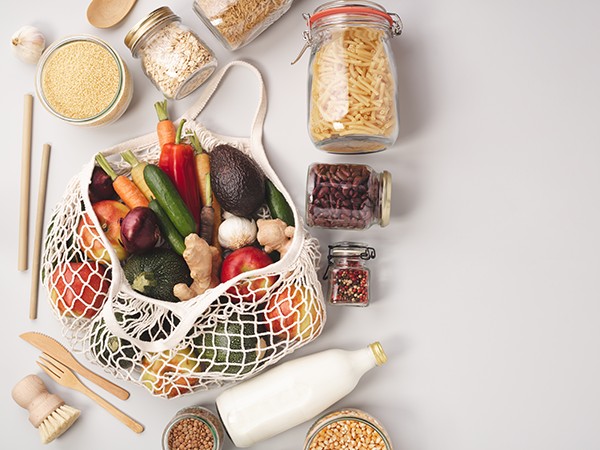
The Dutch have started to waste less food at home. In 2019, the Dutch wasted 34.3 kilos of food per person; almost 7 kilos less than in 2016. There is also less drinking washed away through the sink and the toilet. This puts the Netherlands on track to achieve its goal of halving the food waste by 2030. Minister Schouten of Agriculture, Nature and Food Quality (LNV) is pleased and thinks that the increased attention to food waste certainly played a role in the decline.
Minister Schouten wrote in a letter to the Lower House: "Initiatives to reduce food wastage are bearing fruit. I find it extremely important to be more conscious about food and to value our food: it does justice to the value of food and the people who make it, our farmers, growers and fishermen.
The results come from the study into food waste in households, which is carried out every three years on behalf of the Ministry of Agriculture, Nature and Food Quality under the supervision of the Nutrition Centre, Environment Central, Wageningen University & Research and the Directorate-General for Public Works and Water Management. Since the first measurement in 2010, there has been a drop of 29%. In 2010, 48.0 kilos of solid food were wasted, 41.2 kilos in 2016 and 34.3 kilos this year. In recent years, the Dutch have been wasting less bread, dairy products, vegetables and fruit. However, these products are still the most profitable.
In addition, households also wasted less liquids (coffee, tea, milk, soft drinks, juice, etc.) through the sink or the toilet. In 2019, an estimated 45.5 litres of liquid per person were washed away; more than 11 litres less than in 2016 (57.3 litres).
According to Schouten, it is important that we continue this line in order to halve food waste by 2030: "We are on our way, but there is still much room for improvement. Every kilo counts. Wasting less food is one of the simplest things you can do to reduce your environmental impact. It's a profit for your wallet, too." The task of wasting 50% less lies not only with households, but throughout the entire chain. The Ministry of Agriculture, Nature and Food Quality is working on this together with the Foundation Together Against Food Waste.
The study does not give a definite answer as to why food waste in households has decreased. However, it does mention factors that may have played a role, such as the increasing attention paid to food wastage. The Dutch seem to be more and more aware of the problem, want to take action and are provided with tools to do so. By buying, cooking and storing in a smarter way, a lot of food is prevented from being wasted. Solutions are often simple. Think of freezing bread, measuring pasta and rice, using senses to check if the milk is still good, and storing food in the right place.
Source: © Ministerie LNV